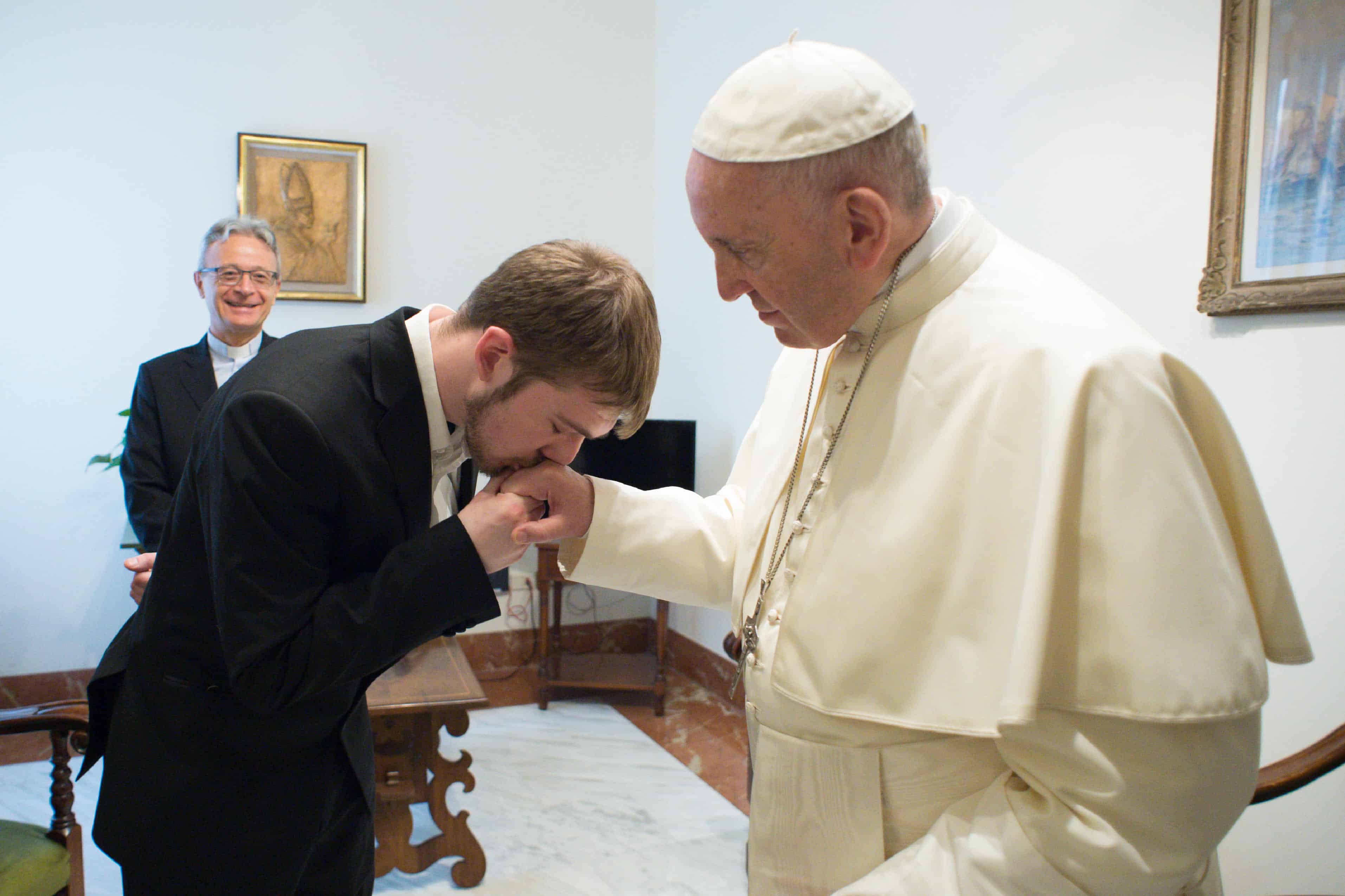The sad case of Alfie Evans divided the Catholic world like nothing else of late – which is saying something.
Commentators disagreed on the bio-ethics of the case. Some argued that the Church “does not teach that every possible recourse must be taken to preserve life,” meaning that one need not hold “to this absolutist position on protecting all life at all times.”
Others argued that at stake was whether “certain profoundly disabled children are unworthy of life.” Charlie Camosy, for instance, argued with a concern for the limits of the medical profession’s knowledge and the rights of parents.

Alfie Evans on 24 April. (CNS photo/Kate Evans, Alfies Army Office Facebook group)
As often happens, disagreement appeared to align with whether one thought the case to be clear-cut or complicated. To be sure, few would deny that Church teaching acknowledges the complexity of such cases, or that the Church offers normative principles for guidance. But emphasizing one aspect over the other at times seemed to have a primarily rhetorical value.
Further, the lines drawn rearranged who sympathizes and disagrees with Pope Francis. Several pro-life groups, for instance, many who think Pope Francis does not do enough to promote pro-life policies, rallied behind the pope’s call for continued medical care for Alfie in Rome. Commentators who prefer Francis’ message of social justice, however, found themselves in the awkward position of not agreeing with the pope – which is perhaps why many of them remained relatively quiet on the story.
But no less importantly, commentators also disagreed on who has the authority to make these biomedical decisions. Some lamented, for instance, that the authority of experts to decide on complicated end-of-life issues was being undermined by abortion politics. For others, Alfie’s situation was a warning about the creeping power of the state vis-a-vis parents.
The prolific theologian and tweeter Massimo Faggioli, for instance, sent out this tweet:
I hope it is not overly optimistic to assume that Catholics should all agree on the fact that the secular state is preferable to a theocratic state. Let’s start small.
— Massimo Faggioli (@MassimoFaggioli) April 28, 2018
A telling response came from Adrian Vermeule:
I find this framing difficult to process, insofar as the liberal state is hardly “secular.” https://t.co/lqqlhF6F4u
— Adrian Vermeule (@avermeule) April 28, 2018
John Courtney Murray predicted that the great Church/State conflicts of modernity would revolve around marriage and the family. Consider the political issues that have become contentious within the Church in recent years, and one cannot help but agree.
I think there are at least two consequences of Murray’s claim.
First, biomedical ethics debates are never just technical: they will always have political implications. Commentators quick to dismiss political concerns – or too quick to assess those political concerns – should re-examine the nexus between technical knowledge and political power in the modern state.
Second, Catholic disagreements on the nature and authority of the state need to be taken seriously. Catholic teaching rested for centuries upon a too-easy alliance with monarchy, an alliance that was “common sense” even as monarchs dominated the very same Church that anointed them. By contrast, the Church’s rapprochement with democracy is comparatively new. We should not pretend that we have all the answers. Particularly, we will have to find ways on all “sides” to move beyond caricatures of the “secular,” “liberal” and “integralist” states to ask hard questions about the demands of the Gospel in our time.
Then, too, Catholics bring all kinds of political assumptions to debates about Catholic teaching. When we find ourselves in disagreement with others about social, economic or ethical issues, there are doubtless political questions worth stepping back to articulate and struggle with.
To be clear: such controversies should not be reduced to politics. Rather, the wisdom of Scripture and the Church’s tradition should help judge, guide and elevate our politics. And given how deeply we disagree on political issues, we could do worse than sit receptively at the feet of such wisdom.


